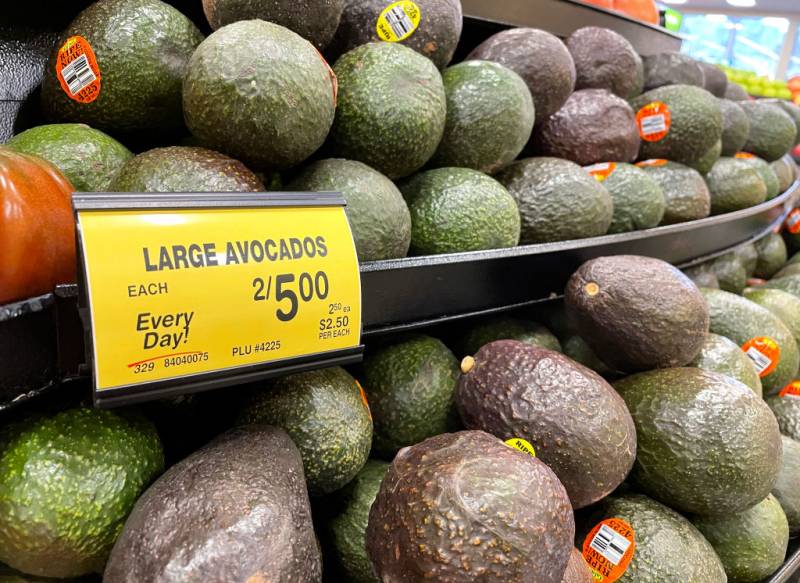The inspectors work for the U.S. Department of Agriculture’s Animal and Plant Health Inspection Service.
Mexican President Andrés Manuel López Obrador said Monday the U.S. suspension on avocado imports and recent environmental complaints are part of a conspiracy against his country by political or economic interests.
López Obrador on one hand downplayed the measure, saying avocados for game day itself had already been shipped north and consumed. “The truth, the Mexican avocados have already been exported,” he said at his daily news briefing. “They already enjoyed the avocados.”
On the other hand, he said producers who wanted to compete with Mexican products, or political factors, played a role in the decision.
“In all of this there are also a lot of political interests,” he said. “They don't want Mexican avocados to get into the United States, right, because it would rule in the United States because of its quality.”
He did not explain what those interests were, but noted ominously, “There are other countries that are interested in selling avocados, as in the case of other farm products, so they lobby, they look for senators, professional public [relations] people and agencies, to put up obstacles.”
It is not the first time that the violence in Michoacán — where the Jalisco cartel is fighting turf wars against a collection of local gangs known as the United Cartels — has threatened avocados, the state's most lucrative crop.
After a previous incident in 2019, the USDA warned about the possible consequences of attacking or threatening U.S. inspectors.
In August 2019, a U.S. Department of Agriculture team of inspectors was “directly threatened” in Ziracuaretiro, a town just west of Uruapan. While the agency didn’t specify what happened, local authorities say a gang robbed at gunpoint the truck that inspectors were traveling in.
The USDA wrote in a letter at the time that, “For future situations that result in a security breach, or demonstrate an imminent physical threat to the well-being of APHIS personnel, we will immediately suspend program activities."
Many avocado growers in Michoacán say drug gangs threaten them or their family members with kidnapping or death unless they pay protection money, sometimes amounting to thousands of dollars per acre.
On Sept. 30, 2020, a Mexican employee of APHIS was killed near the northern border city of Tijuana.
Mexican prosecutors said Edgar Flores Santos was killed by drug traffickers who may have mistaken him for a police officer, and a suspect was arrested. The U.S. State Department said investigations “concluded this unfortunate incident was a case of Mr. Flores being in the wrong place at the wrong time.”
The avocado ban was just the latest threat to Mexico's export trade stemming from the government's inability to rein in illegal activities.
On Thursday, the U.S. Trade Representative’s Office filed an environmental complaint against Mexico for failing to stop illegal fishing to protect the critically endangered vaquita marina, the world’s smallest porpoise.
The office said it had asked for “environment consultations” with Mexico, the first such case it has filed under the U.S.-Mexico-Canada free trade pact. Consultations are the first step in the dispute resolution process under the trade agreement, which entered into force in 2020. If not resolved, it could eventually lead to trade sanctions.
Mexico’s government has largely abandoned attempts to enforce a fishing-free zone around an area where the last few vaquitas are believed to live in the Gulf of California, also known as the Sea of Cortez. Nets set illegally for another fish, the totoaba, drown vaquitas.

